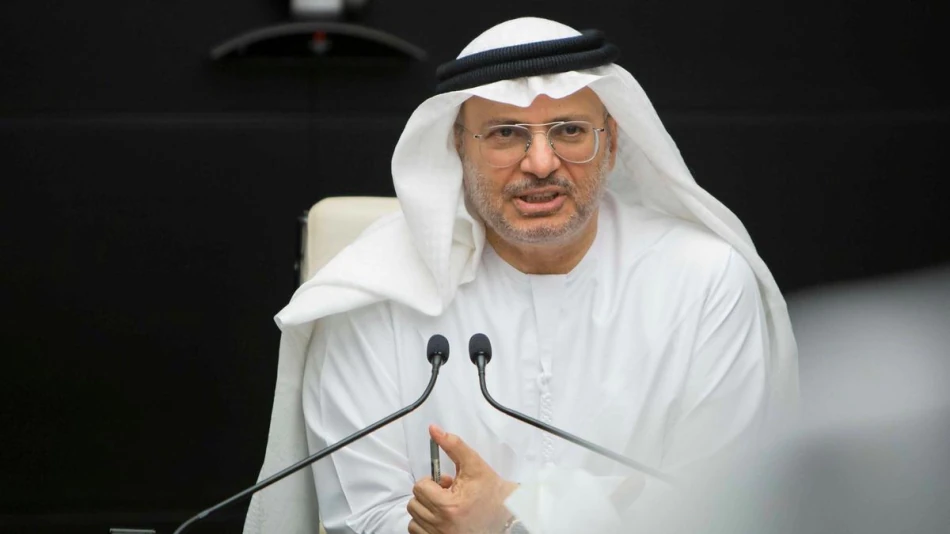
UAE Minister Slams Netanyahu's Expansionist Rhetoric as Inflammatory
UAE Diplomat Condemns Netanyahu's "Greater Israel" Vision as Extremist Provocation
Dr. Anwar Gargash, diplomatic advisor to the UAE President, has sharply criticized Israeli Prime Minister Benjamin Netanyahu's recent statements about "Greater Israel," calling them extremist rhetoric that continues to destabilize the Middle East. The rebuke highlights growing regional tensions and challenges the fragile diplomatic progress achieved through the Abraham Accords.
Sharp Words from a Key Regional Player
In a pointed statement on X (formerly Twitter), Gargash described Netanyahu's comments as "extremist and arrogant rhetoric" that has long forced the region and its peoples to pay a heavy price. The UAE diplomat posed direct questions about the Israeli leader's motives: "What provocation is this? What interest is sought from this inflammatory discourse? How long will extremism and extremists control the future of the region through rhetoric of exclusion and marginalization?"
The language used by Gargash represents some of the strongest criticism from the UAE toward Israeli leadership since the two countries normalized relations in 2020.
Context: Abraham Accords Under Strain
The UAE's public rebuke carries particular weight given its role as a pioneer in Arab-Israeli normalization. The Abraham Accords, signed in September 2020, marked a historic shift in Middle Eastern diplomacy, with the UAE becoming the first Gulf state to establish formal diplomatic relations with Israel in decades.
However, the ongoing Gaza conflict and Netanyahu's increasingly hawkish rhetoric have tested these relationships. The UAE has consistently called for de-escalation while maintaining its diplomatic ties with Israel, creating a delicate balancing act between regional stability and bilateral cooperation.
Economic Stakes in Diplomatic Relations
Since normalization, UAE-Israel trade has grown significantly, reaching approximately $2.5 billion in 2022. Key sectors including technology, defense, and renewable energy have seen substantial cooperation. The UAE's criticism suggests that continued inflammatory rhetoric could jeopardize these economic gains and broader regional integration efforts.
Regional Implications and Broader Pattern
Gargash's statement reflects a broader regional frustration with what many Arab leaders view as Netanyahu's increasingly uncompromising positions. Similar concerns have been expressed by Jordan and Egypt, both of which maintain peace treaties with Israel but have grown increasingly critical of Israeli policies.
The timing of these comments is significant, coming as regional powers seek to prevent the Gaza conflict from escalating into a broader Middle Eastern war. The UAE, along with Saudi Arabia and Qatar, has been working diplomatically to contain the crisis while maintaining pressure for a ceasefire.
Looking Ahead: Diplomacy at a Crossroads
The UAE's public criticism represents a calculated diplomatic message rather than a fundamental shift in policy. Abu Dhabi appears to be using its unique position as both an Abraham Accords signatory and a respected regional voice to pressure Israeli leadership toward moderation.
For Netanyahu, such criticism from a key Arab partner underscores the diplomatic costs of his current approach. As Israel faces increasing international isolation, maintaining relationships with Abraham Accords partners becomes crucial for long-term strategic interests.
The effectiveness of this diplomatic pressure will likely depend on whether other regional partners echo similar sentiments and whether the international community reinforces these calls for de-escalation. The UAE's willingness to speak out suggests that even normalized relations have limits when fundamental regional stability is at stake.
Most Viewed News

 Sara Khaled
Sara Khaled






